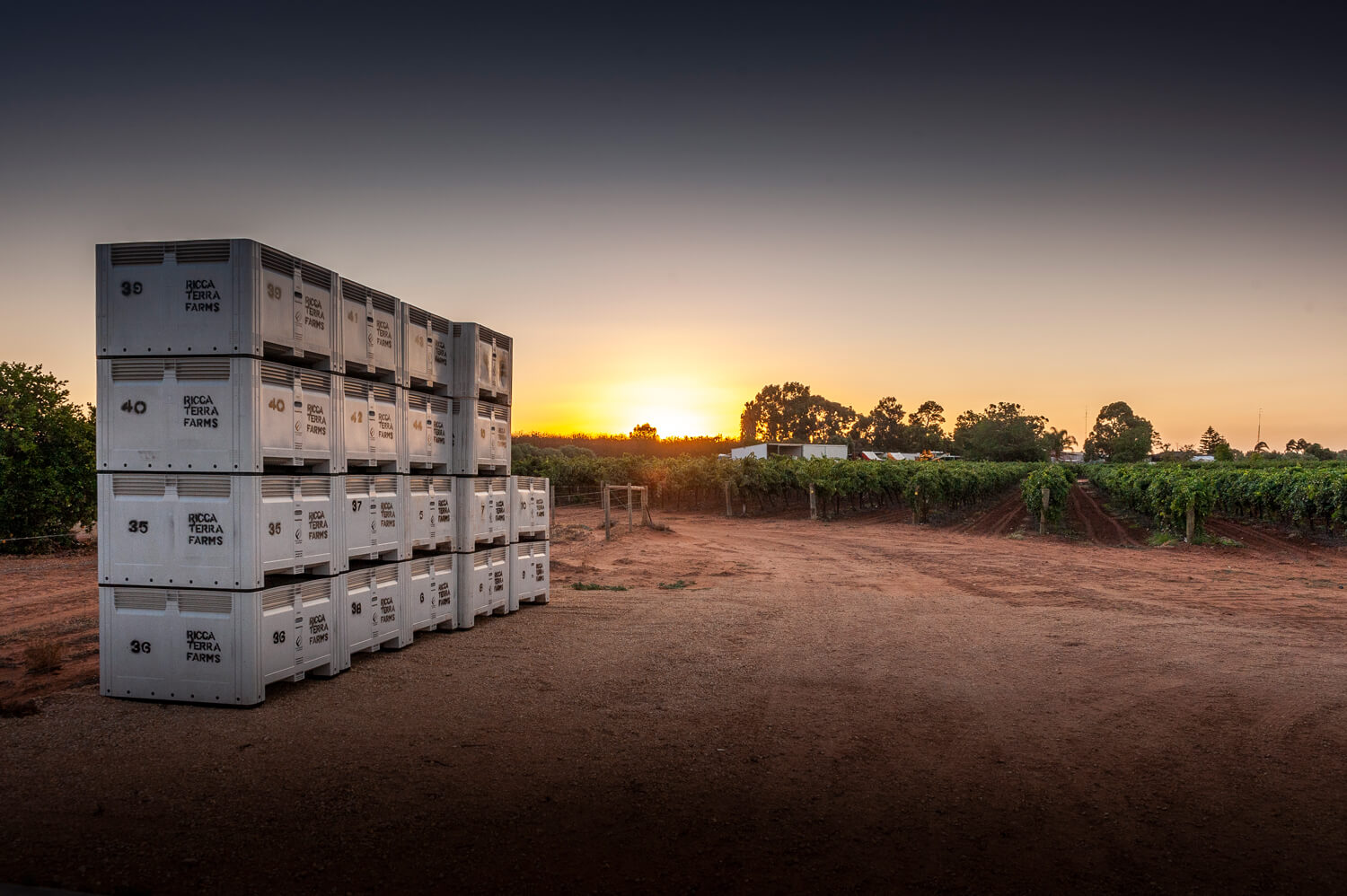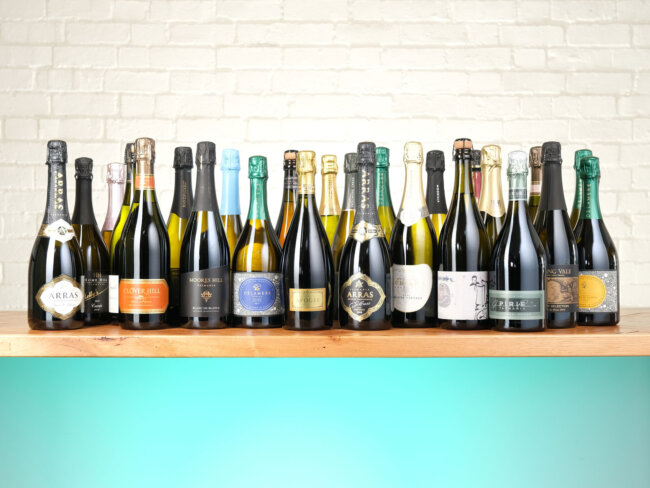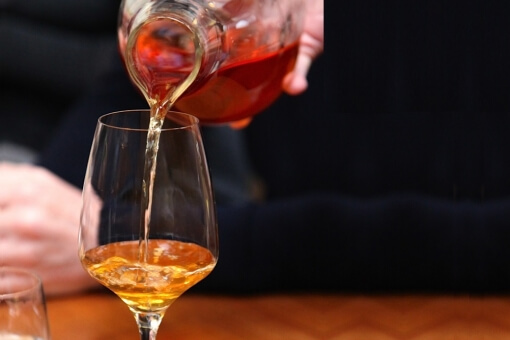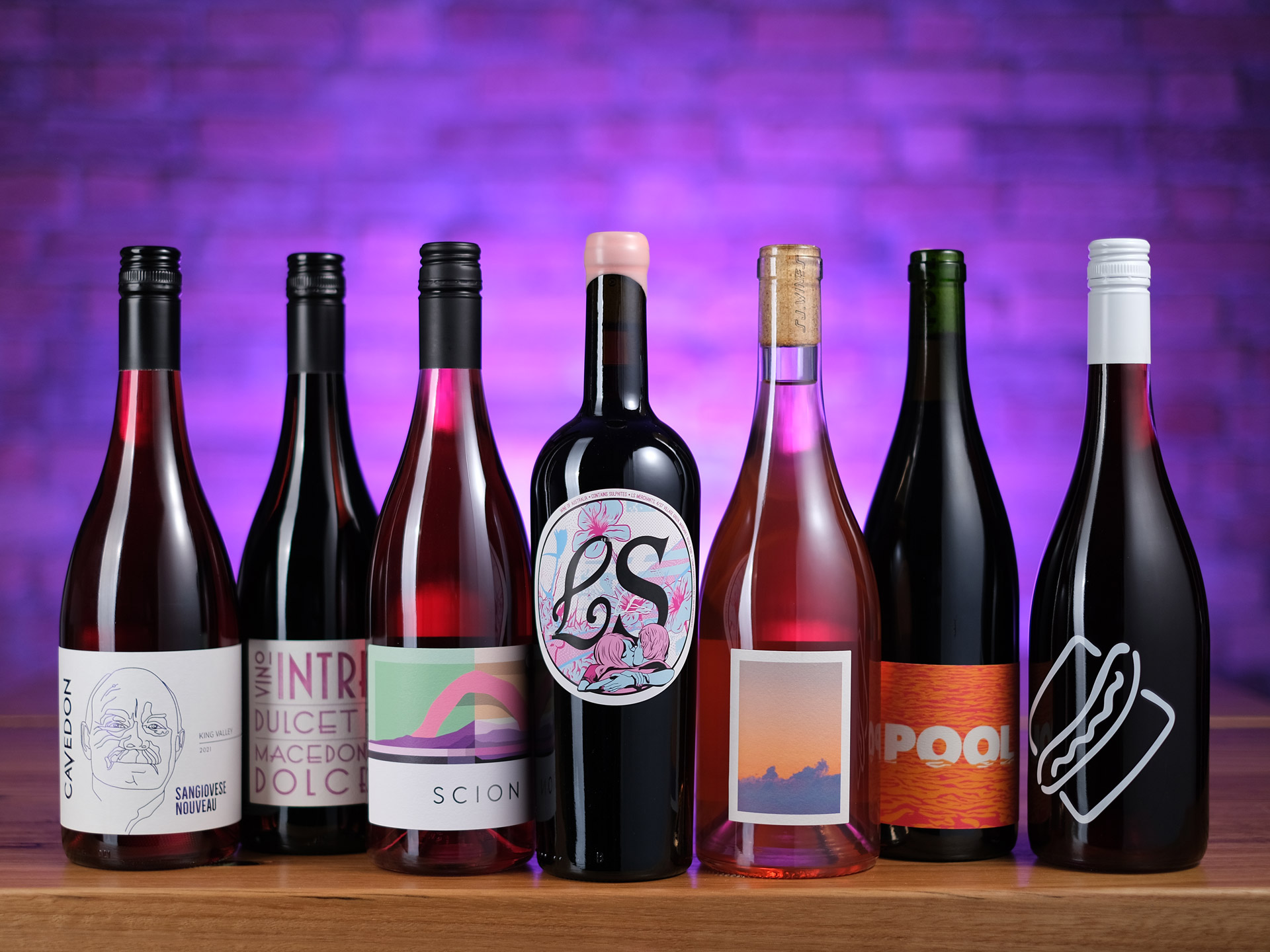Ten years ago, five years ago – less even – South Australia’s Riverland was not a name worn proudly on the front label of a wine bottle. It was in the fine print. Obscured, somewhat irrelevant. For Australia’s largest wine region, this may seem odd, but that anonymity was – and still largely is – part of the picture. While so many of Australia’s regions are about specific attributes, specific characters, the Riverland is the everyman, a hot-climate powerhouse of volume production, a champion of affordability and reliable consistency. But there’s more to the Riverland than that, with new growers and makers working with the hot climate – which favours organics – to make wine of regional character and high quality. Delinquente Wine Co. and Gatch (in collaboration with Little Bang Brewing Company) made this year’s Young Gun Top 50, and they’re leading the charge in redefining a region.
Behemoth, gargantuan, humongous
The vineyards of the Riverland flank the Murray as it snakes its way for 330 kilometres from Blanchetown – some 70-odd kilometres north-east of the Eden Valley – across some pretty arid territory before passing through Renmark and terminating abruptly at the Victorian border. The Murray Darling region picks up the thread then, but that’s another story – although a somewhat similar one.
Grapes are weighed by the semi-trailer load, truck and all.
That river is the lifeblood of agriculture, with irrigation essential for growing anything, whether grapes, almonds, oranges… And pretty much everything does grow there, with the abundant sunshine and flat plains perfect for orchards, vineyards or fields of grain or vegetable cops. And it’s that river that has been used to pump out bumper crops of wine grapes, with vines carrying maximum yields and berries juiced up to bursting with water. And those grapes are weighed by the semi-trailer load, truck and all. From a fine wine perspective, it’s unglamorous stuff.
“You can get riesling if you want to, but I’m not sure you want riesling from the Riverland,” he laughs.
It’s easy to be critical – snobby even – about the region, but the Riverland was never pitched as a place for fine wine. Rather, the grapes were destined for casks, flagons and cheap bottles. High yields are essential for the growers to make money in that market, and more juice means more wine. It’s an economic reality. And the Riverland still does this incredibly well, but there are growers and makers – like Bassham Wines and 919 – who are rethinking what the Riverland can do, and what the wines can be.
Local heroes
For Con-Greg Grigoriou, of Delinquente Wine Co., the region is home, and it occupies a significant place in his psyche. “I grew up on a vineyard in the Riverland. It’s very much that feeling of home,” he says. “I love the sky there. The vastness. We spent half our life out on the water, whether it’s water-skiing or just hanging out. It’s my happy place.”
![]()
Con-Greg Grigoriou of Delinquente Wine Co. harvesting montepulciano grapes.
Although Grigoriou grew up on the family vineyard, wine wasn’t really part of the picture, not for his career at least, not for his future. The Riverland is a soulful place for him, laced with memories and rich with connections to family and to the land, but the wine was bulk wine, bland, anonymous and commercial. That all changed when “a very specific set of circumstances” allowed him to make wine the way he wanted.
That set of circumstances was the right vineyard. “It’s on a really good patch of dirt; one of the few areas in the region that has sandy loam over limestone. It’s got really high-nutrient soils – being near the ancient lake – with varieties that are suited to the climate. And being looked after the way it is – certified organic and biodynamic – the fertility is really awesome. The quality of the fruit out there on that vineyard allows us to make wines that I’m willing to stand behind.”
“The vineyard I grew up on has been organic for 20 years. Dad always says that every vineyard in the Riverland should be organic. It’s so hot and dry; there’s no reason to spray anything other than what’s allowed under the organic regime. It’s the perfect region for organics.”
Ansel Ashby, of Gatch Wine, sources fruit from the region for his co-lab with brewers Little Bang. “Australia is hot. What have historically been bulk regions, the Riverland, the Riverina… are really hot, and they need water,” he says. “Traditionally, you planted shiraz and cabernet and whatever, because that was commercially viable, and you tried to pump as much of it out as you could. I don’t want to disparage that side of the industry, but it’s a totally different mindset from what I’m trying to do, and what a grower like Ashley Ratcliff is trying to do.”
New viticulture
Coming out of over a decade working in a senior role at Yalumba, Ashley Ratcliff established a family vineyard at Barmera, called Ricca Terra Farms. That vineyard, and a network of growers he closely works with, has started to broaden the thinking in the Riverland, with an emphasis on so-called alternative varieties and an experimental and non-systemic approach to viticulture. Today, some of the sharpest of cutting-edge makers source fruit from Ricca Terra, like Unico Zelo and Brash Higgins.
“Fifteen years ago, you couldn’t have gone to the Riverland to get grapes to make premium wine,” Ashby reflects. “Maybe you could have found and old Italian family with a block in their backyard… maybe… but as a commercial prospect, nobody was doing it. And now people are saying, actually we can. The Riverland is absolutely capable of producing premium wines. I think people are realising that they shouldn’t have 500 hectares but have 50 hectares and sell the fruit for a good price.”
![]()
Ricca Terra Farms are a vineyard source for a number of boutique wine labels, and have been at the centre of the changing perception of the Riverland.
Ratcliff has introduced methods that may be normal in the Yarra Valley or Margaret River – like rigorous manual vineyard work – but are anathema to the bulk-wine mentality of the Riverland. “He said, let’s reduce our yields,” Ashby reflects. “Let’s plant varieties that make sense, that thrive in the heat. Let’s look at our water management instead of just flooding it with irrigation. How do we manage our canopy? Shoot thinning and getting an open canopy and really exposing the fruit doesn’t work in a place like the Riverland.”
Ashby notes that the Riverland grows pretty much everything. “You can get riesling if you want to, but I’m not sure you want riesling from the Riverland,” he laughs. “Thistledown Wines have a massive Riverland project looking at old-vine varieties, that are 60, 70, 80 years old. They were previously going into bulk wine, but they talked to the growers and convinced them to do something totally different, and they’re making some really awesome wines. And they’re super premium, made from more traditional varieties, and grenache is the real star.”
A mediterranean future
At the locus of positive change is the planting of varieties that thrive in a hot climate. At Ricca Terra, they have a slew of Mediterranean varieties planted – including arinto, vermentino, tinto barroca, fiano, montepulciano and nero d’avola – and it’s where Ashby sources his fruit from.
“Nero d’avola’s probably proven to be the most successful, but that doesn’t mean other varieties aren’t also going to be incredibly successful. I think negroamaro probably will be. It comes from similar places in Italy; it has that heat tolerance. If you look at the traditional areas where nero d’avola is grown in Sicily, there are a lot of commonalities [with the Riverland]. Nero d’avola actually thrives in that heat. You still get the flavour and phenolic development, but it slows down the alcohol [sugar] development and continues to retain acidity.”
“There’s a lot of experimentation going on,” says Ashby. “Nero d’avola’s probably proven to be the most successful, but that doesn’t mean other varieties aren’t also going to be incredibly successful. I think negroamaro probably will be. It comes from similar places in Italy; it has that heat tolerance. If you look at the traditional areas where nero d’avola is grown in Sicily, there are a lot of commonalities [with the Riverland]. Nero d’avola actually thrives in that heat. You still get the flavour and phenolic development, but it slows down the alcohol [sugar] development and continues to retain acidity.”
![]()
Ansel Ashby of Gatch Wine pours his Nero Nouveau at Little Bang Brewery, where he made the wine.
Grigoriu similarly works with Mediterranean varieties, picking them early to retain freshness, but he stresses that this is only a part of the puzzle. “You can grow the right varieties, but if you’re not farming them properly, or you’re on a patch of dirt that doesn’t really stack up, then you’re going to miss out. Everything’s got to work together to get it right.”
For many Riverland producers, herbicides and pesticides are still seen as a safety net, ensuring a reliable crop, but Grigoriou believes they are entirely unnecessary. “My dad’s been growing grapes for 30 years, and he’s been in the wine industry even longer,” he says. “The vineyard I grew up on has been organic for 20 years. Dad always says that every vineyard in the Riverland should be organic. It’s so hot and dry; there’s no reason to spray anything other than what’s allowed under the organic regime. It’s the perfect region for organics.”
Working with the climate, with the right varieties, with the right viticulture, the Riverland is fast developing a distinctive identity, and much of the definition is being generated by smaller makers. The Riverland is vast, and it will perhaps always be the home of functional rather than aspirational wine, but that wine no longer defines it.
For Grigoriou, making wine in his home territory was an opportunity to express what he loved about the Riverland. “I’ve never really had a chance to communicate it. I can talk about it, but unless you’ve been there… For me it’s an opportunity to show what the Riverland can do. If you grow the right grapes, treat them with respect, you can make some really good wines that speak to that sense of place. The freshness, vitality and sunshine really come through.”
![]()
Grigoriou with montepulciano grapevines planted circa 2008 at the Bassham family organic vineyard in Barmera.
The Wines
2019 Delinquente ‘Weeping Juan’ Pétillant Naturel
(90% Vermentino and 10% Lagrein) Hazy, pinkish orange hue. This has lifted bready yeast notes and a plump of red and coolly ripe dark berry fruits, with sour plum peeking through a gentle brush of cut herbs and citrus. This is super dry and gently saline, but there’s plenty of cushioning texture which couples with the fizz to give this volume in the mouth, but the overall impression is a wine of thirst-slaking refreshment.
2019 Delinquente ‘The Bullet Dodger’ Montepulciano
This has a decidedly black-fruited vibe, with leathery, hot bitumen notes accenting. It’s not super rich and ripe, but there’s ample black-berried fruit to partner some chewy, appealingly scruffy tannins and bright acid. This is barely sneaking up from mid-weight, with a real food-friendly feel, both juicy and savoury, with structure keeping things vibrant.
2019 Gatch x Little Bang Nero Nouveau
This is super bright, with a varietal splay of wild raspberry, dried dark fruits, red cherries, plum skin and a classically earthy nero d’avola note. But for all the savoury accents, it’s mainly playing down a bright-fruited line, with a lightweight, buoyant feel to it – so fresh and energetic – with grapey tannins and notes of blackberry skin and cherry pit on the finish. This takes a chill well, but it also does its thing at room temperature.
See the full list of Top 50 winemakers in the 2020 Young Gun of Wine Awards here. Join in our virtual events here, and also vote on who wins the People’s Choice until June 1.










